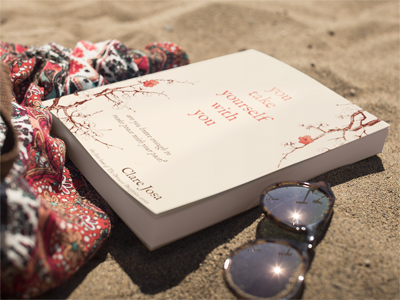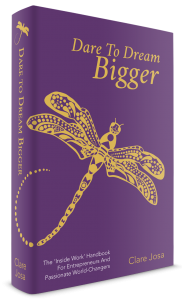No one teaches you how to handle grief at Christmas after losing a loved-one.
The recent Twitter storm about triggers for grief at Christmas made it clear how many of us struggle to feel festive at this time of year, how close the pain of loss is to the surface. But it’s not something we talk about. Social media is silent, apart from the occasional ‘miss you, Mum’ post on the big day.
As I head into my second Christmas without my Mum, the pain is triggered by the number of times a day I suddenly remember she has gone. The huge waves of grief from those early months have subsided. But it still shocks me how often I forget she’s not there any more. Daily. Silly things act as triggers:
- Seeing a gift she might love and suddenly remembering I can’t give it to her
- Seeing a Christmas advert and wanting to call her, to laugh about how corny it is, then realising I can’t
- The silly things the kinds say in the run-up to Christmas that I know would make her laugh
- How excited my kids get when they find their Christmas stockings in the box of decorations
- My six year old insisting on counting backwards on his Advent calendar doors, so he can tell how many ‘sleeps’ are left until Christmas (very sensible idea)
- The school plays she’ll never see – and wanting to text her photos of her grandsons in them
We each have our own list. And the one thing most of us have in common is the belief that we have to go through this silently, without letting anyone in.
Putting up the decorations proved too much for me last night. “I’ll never see Mum’s Christmas tree again!” was a thought that got me sobbing, in front of the kids, right when we should have been listening to carols and filling the house with joy as we put up our own tree.
And I got a double whammy this year. Over the summer I was writing my first novel, You Take Yourself With You, and the lead male character (Christof) was experiencing his first Christmas without his Dad, who had died in a car crash that he survived. Writing about Christof’s experiences of ‘the first xyz, since…’ shone light on my own grief and made me explore my own healing process. Developing the story of how he coped made me contrast my character’s strategies with my own.
Last year – our first Christmas without Mum, who was always the life and soul of the festival – I managed to break with tradition and go to someone’s house who had never hosted our Christmas. It really helped. This year will be the first Christmas I have hosted without Mum there – and without my Dad, who will be with his new wife’s family for their first Christmas after getting married.
The thing is, I made a promise to myself after Mum died that I would stop the many ways we ‘pretend’ in life. I would allow my social media feed to show the less-beautiful stuff, as well as the happy stuff. I would let people know if I didn’t feel up to something. I would talk openly about the emotions I was feeling around losing Mum. And working through the tsunamis of pain that would often overwhelmed me at first, I developed some tools that really helped me to move through them, rather than pretending they weren’t there.
And when I stopped fighting the emotions and allowed them to wash through me, I felt the relief afterwards – the closure – the letting go – in a way that would have been impossible had I carried on pretending, storing those painful experiences up for a future date when they would catch me unawares.
Here are three strategies that helped me to handle the grief and loss – and how I’ll be using them this Christmas:

1. Accept
I can’t change the past and I can’t easily change my subconscious emotional response to it. As Carl Jung said, “what you resist persists.” If you fight the emotions and push them down, they will find a way to get you, later. If you allow yourself to experience them, without diving in to the drama, they pass on through more quickly than you might think.
When I was studying to become a meditation teacher, a wise old Buddhist monk once told me that any emotion, left to its own devices, would pass on through in under sixty seconds. At the time, I was far from grateful to him for this wisdom. I was convinced that negative emotions were justified in lasting for the hours, days and even months they managed in my life. But now I can see he was right. The pain I felt was caused more by the stories I was telling myself than by the emotions themselves, which were nothing more than a chemical reaction in my body.
There’s a how-to for you on this here: Is Your Monkey Mind Telling You The Truth About Stress?
So when my memories of Mum come up, nowadays I allow myself to experience them, knowing that doing anything else is like trying to deny how much I care. Here are some practical ways that meditation can make this easier.
2. Breathe
When emotions come up, it’s natural to tense up and hold your breath. But that triggers your body’s sympathetic nervous system – your fight / flight / freeze response – firing off your stress hormones and feeding the painful emotions with negative thoughts.
The simple act of breathing, deeply and mindfully, can reset this cascade of hormones, giving you access to more neutral thoughts and emotions, allowing the grief to pass on through. When you know how to go straight through the middle and come out the other side, you no longer have to avoid; to pretend; to white-wash.
If you’re not sure how to do this, there’s a guided meditation that takes you through it here. I will be using exactly this technique to get grounded and let go of those emotions, as we go through Christmas this year.
3. Choose
The real work in handling grief at Christmas comes before the big day. The more you can work with techniques such as mindfulness or gratitude to retrain your mind to think thoughts that make you feel good, on a day-to-day basis, the easier it is to bounce back from difficult emotions.
Keep a gratitude journal or building up a daily mindfulness practice can pay back every day for the rest of your life.
And I have been doing this by turning painful memories round. I allow myself to experience them – for example, the fact that I won’t ever see Mum’s Christmas tree again – and then I will turn them into gratitude: “I am grateful that I had so many years of seeing how much Mum
Accept - Breathe - Choose - a 3-step strategy for handing grief at Christmas.Click To TweetI hope these three strategies help you this Christmas. Let me know if you have any tips of your own, via the comments.
And, above all, if you find the festive season difficult, please make sure you let people help you. Talk to them about how you’re feeling. You don’t have to do this on your own. Allowing them to walk by your side could be the greatest Christmas gift ever, for both of you.
With love,
![]()
 Clare Josa’s new novel – You Take Yourself With You – has been described as ‘unputdownable’ by readers and is available in-store and online.
Clare Josa’s new novel – You Take Yourself With You – has been described as ‘unputdownable’ by readers and is available in-store and online.



 It’s time to stop lying to ourselves about self-doubt. Do you ever find yourself dreaming big, but playing small? Lying awake at 3am, telling yourself secret stories about why you’re not good enough? Have you ever turned down a brilliant opportunity and then regretted it later? Then today’s episode of the Dare To Dream Bigger podcast is for you!
It’s time to stop lying to ourselves about self-doubt. Do you ever find yourself dreaming big, but playing small? Lying awake at 3am, telling yourself secret stories about why you’re not good enough? Have you ever turned down a brilliant opportunity and then regretted it later? Then today’s episode of the Dare To Dream Bigger podcast is for you!





 Asking for feedback? We all know it’s a good idea. But what happens if a client comes back with a self-esteem-shattering humdinger? How do you pick up the pieces? And how can you train your clients to give you feedback that is useful, actionable and leaves you both feeling great, even if there are things to improve?
Asking for feedback? We all know it’s a good idea. But what happens if a client comes back with a self-esteem-shattering humdinger? How do you pick up the pieces? And how can you train your clients to give you feedback that is useful, actionable and leaves you both feeling great, even if there are things to improve?


 We have a
We have a 
